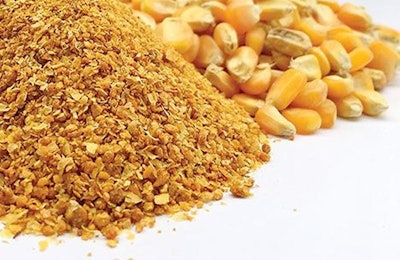
Malaysia is looking to reduce its reliance on imported feed ingredients in order to support its domestic poultry and livestock sectors.
Almost 100 percent of Malaysia’s total feed requirement has to be imported, according to Minister of Agriculture and Agrobased Industry Datuk Seri Ahmad Shabery Cheek, reports The Malaysian Reserve.
Call to increase domestic corn production
The minister called for domestic corn production to be increased, and for better use to be made of local materials. Among these is palm kernel cake, a byproduct of palm oil production, of which Malaysia ranks second behind Indonesia in annual output.
Ahmad Shabery said that reducing the country’s reliance on imported feed ingredients would help support Malaysia’s fast-growing poultry industry, as well as those involving other meats, dairy and fishery products. It would also help raise national food self-sufficiency, and create job opportunities for local people.
Currently, Malaysia imports 98 percent of its total grain requirements, according to The Borneo Post, including all its wheat (needed to satisfy a growing demand for bakery products), and soybean meal for livestock feeding, Main suppliers are Australia, the U.S., Argentina and Brazil. In 2016, Malaysia imported 4.1 million metric tons (mmt) of corn, and 1.3 mmt of soybean meal.
While domestic supplies of poultry meat, eggs and fish products easily cover the country’s demand, such a heavy reliance on imported materials to support these sectors threatens Malaysia’s food security, according to a senior official of UNI Malaysia Labour Centre.
Malaysian poultry and egg production
With a self-sufficiency rate of 125 percent in poultry and eggs, Malaysia exports around 20 percent of its output, mainly to neighboring Singapore, according to the Minister.
In 2016, Malaysia produced 830,531 metric tons (mt) of chicken eggs, according to data from the statistics arm of the United Nations’ Food and Agriculture Organization, FAOstat. The figure continued in a rising trend in output from 621,480 mt in 2011. Chicken meat production was 1.367 mmt in 2013, the most recent year for which data have been published by this agency.
Although generally Malaysia is self-sufficient in poultry products, some chicken parts and chicken wings are imported for the processing industry, according to the USDA Foreign Agricultural Service. In 2016, Thailand was the leading supplier, followed by China and The Netherlands, in a trade worth US$119 million.
Malaysia is not the only country aiming to reduce its imports of feed ingredients while supporting domestic production of meat, eggs and dairy products.
The European Union has recently issued guidance on the use of food wastes in animal feeds, while others are trialing locally grown pulses, or algal and insect proteins.

















